Smart and Green Public Services in Euro-Mediterranean Cities
By 2050, 68% of the global population is expected to live in urban areas. Designing more sustainable cities will therefore be crucial over the decades to come. To respond to this global challenge, the “smart city” concept seeks to understand how digital technologies can help to optimize the environmental footprint of urban areas, including that of public services. In this article, we zoom in on the efforts of the Interreg MED Green Growth Community to develop green and smart public services in Euro-Mediterranean cities.
What is a smart city?
“A smart city is a place where traditional networks and services are made more efficient with the use of digital and telecommunication technologies for the benefit of its inhabitants and business. A smart city goes beyond the use of information and communication technologies (ICT) for better resource use and less emissions. It means smarter urban transport networks, upgraded water supply and waste disposal facilities and more efficient ways to light and heat buildings. It also means a more interactive and responsive city administration, safer public spaces and meeting the needs of an ageing population.”
Smart cities strive to reduce resource inputs by harnessing digital technologies to develop intelligent solutions in terms of energy, housing, water management, waste and mobility. As innovation laboratories, they can also induce behavioral shifts towards more sustainable lifestyles and approaches among urban populations.
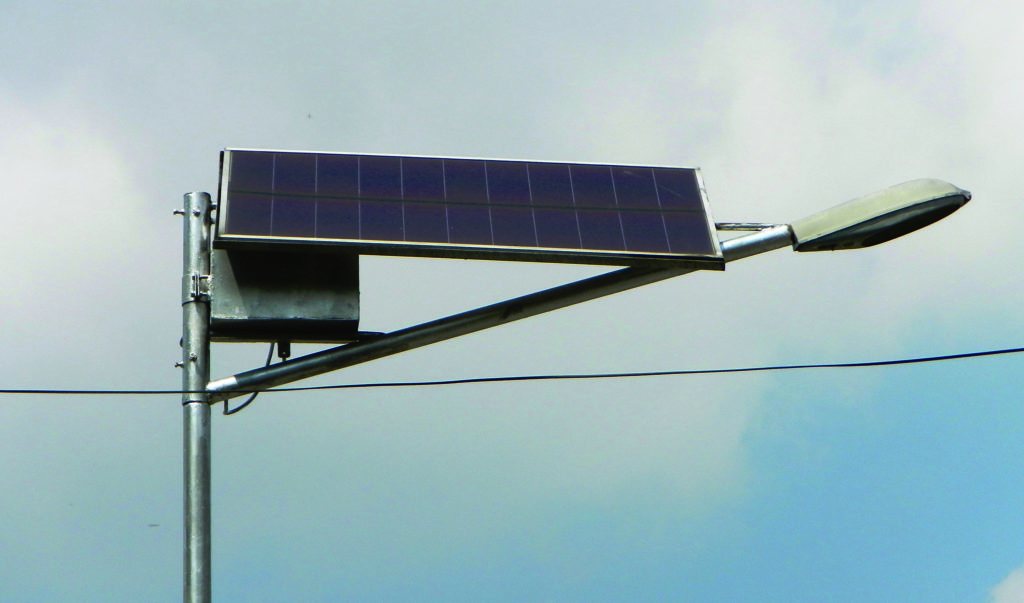
Alongside the EU Green Deal, numerous EU-wide efforts to boost smart cities are underway. For instance, the European Innovation Partnership on Smart Cities and Communities (EIP-SCC) promotes integrated solutions for urban challenges related to energy, mobility, transport and ICT. Supported by the European Commission, it gathers cities, industry, small business (SMEs), banks, research and others, and is currently running the “Join, Boost, Sustain” Declaration and campaign for EU public administrations to support the emergence of a “European way of digital transformation in cities and communities”.
Within the Smart City concept, increasing the capacity of municipal authorities and other actors is a cornerstone of the provision of smart and green public services. This requires new competences, know-how and resources among public administrations. On the data side, disaggregated data is necessary to adequately portray local urban realities and link their opportunities and challenges to the targets set out by the EU Green Deal and SDGs. On the human side, this city-led approach is necessarily citizen-centric and citizen-driven. Indeed, the open innovation ecosystems that smart cities strive to create rely on the ethical and socially responsible access, use, sharing and management of data. For instance, digitalization can present new solutions for the remote monitoring of air and water pollution, or optimizing resource use in urban spaces. Expanding the reach of this concept in the European countries bordering the Mediterranean is also one of the objectives of the Interreg MED Green Growth Community.
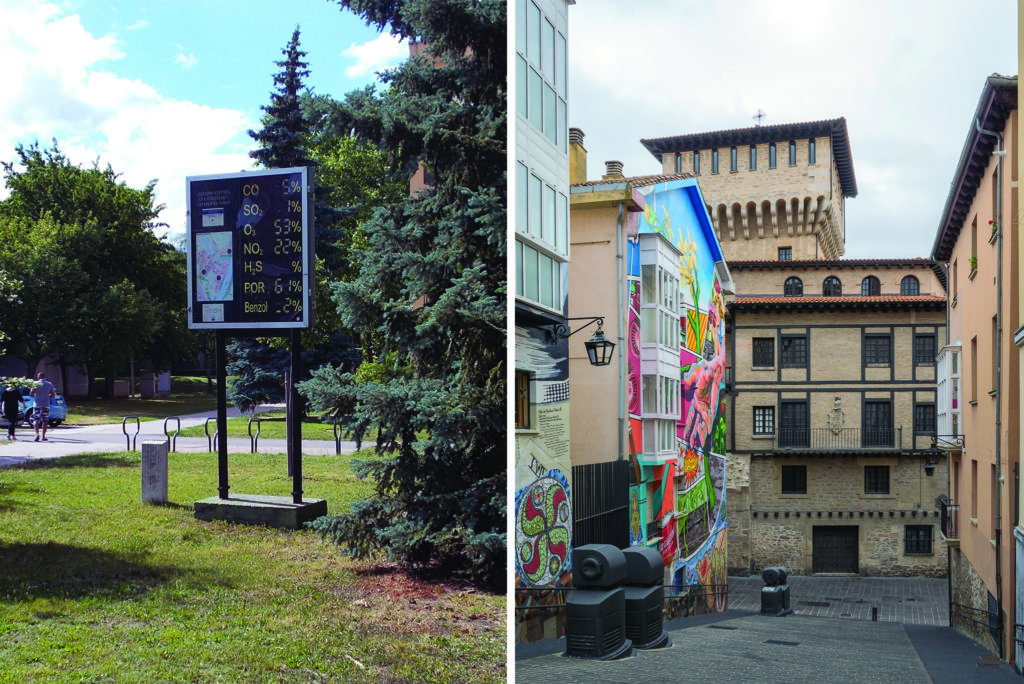
Smart cities in the Euro-Mediterranean
The Interreg MED transnational European Cooperation Programme for the Mediterranean area drives regional cooperation in the EU states that border the Mediterranean Sea. Its Interreg MED Programme’s Green Growth Community (GGC) counts several projects that are applying the Smart City concept to specific sectors such as energy efficiency in public infrastructure and urban mobility.
The GGC focuses on green growth, the circular economy, the sound management of natural resources, enhancing cross-sectoral innovation and promoting green jobs and social justice through an integrated and territorially-based cooperation approach. It consists of 14 projects connecting 165 partners from 13 countries in the Mediterranean working on agrifood, eco-innovation, smart cities, waste management and green growth finance. The Union for the Mediterranean (UfM) labelled the Green Growth Community in October 2019, acknowledging its potential to advance cooperation in the transition to a green and circular economy and to deliver concrete benefits to the Mediterranean region. Through its Green Growth Capitalisation Platform, the GGC currently supports its projects in their communication and capitalization efforts to increase their impact at the policy level and ensure their potential transfer and replication into other territories.
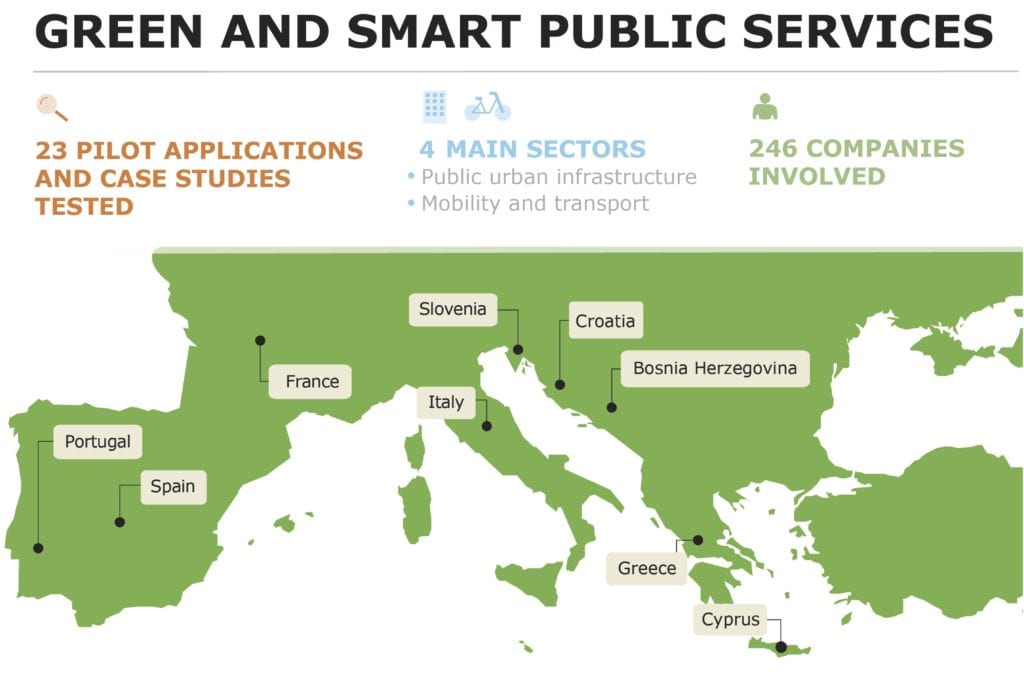
One of the foci of the GGC is Smart Cities, in particular the provision of smart and green public services by public administrations. This involves capturing and analyzing data to inform the process of delivering smart and green public services coupled with increased resource efficiency, sustainability, social inclusiveness and citizen well-being. The following GGC projects are contributing to the design and implementation of smart and green public services in the Interreg MED Green Growth Community’s target countries.
ESMARTCITY: Enabling Smarter City in the MED Area through Networking
Countries: Bosnia and Herzegovina (East-Sarajevo), France (Lyon), Greece (Mesolongi, Patras, Pyrgos), Italy (Pescara, Milan), Portugal (Palmela, Setúbal, Sesimbra) and Spain (Huétor-Tájar, Agrón)
The ESMARTCITY project used digital, energy-saving technologies to increase the energy efficiency of urban infrastructure, specifically public lighting and public buildings. About 35 TWh of electricity is consumed by over 56 million streetlights in Europe. Due to their inefficiency, numerous municipal bills are devoted to covering the energy cost of public lighting alone. Public buildings are the second main energy consumer for European municipalities. Overall, buildings consume around 40% of European energy consumption and account for 36% of the EU’s CO2 emissions. To tackle these challenges, ESMARTCITY raised awareness among public authorities concerning solutions to increase the energy efficiency of their public infrastructure. This involved the adoption of open data practices to allow for energy consumption data analysis, while streamlining public procurement procedures for public administrations to adopt energy-efficient solutions more easily. ESMARTCITY recently shared policy recommendations for local and public administrations in its Green Paper for Innovation Policy Change. The project promotes innovation based on the Smart City concept in Mediterranean cities. The digital solutions that it promotes have the potential to improve the quality of public services delivered to citizens while reducing their environmental impacts and stimulating the creation of green jobs and more sustainable urban lifestyles.
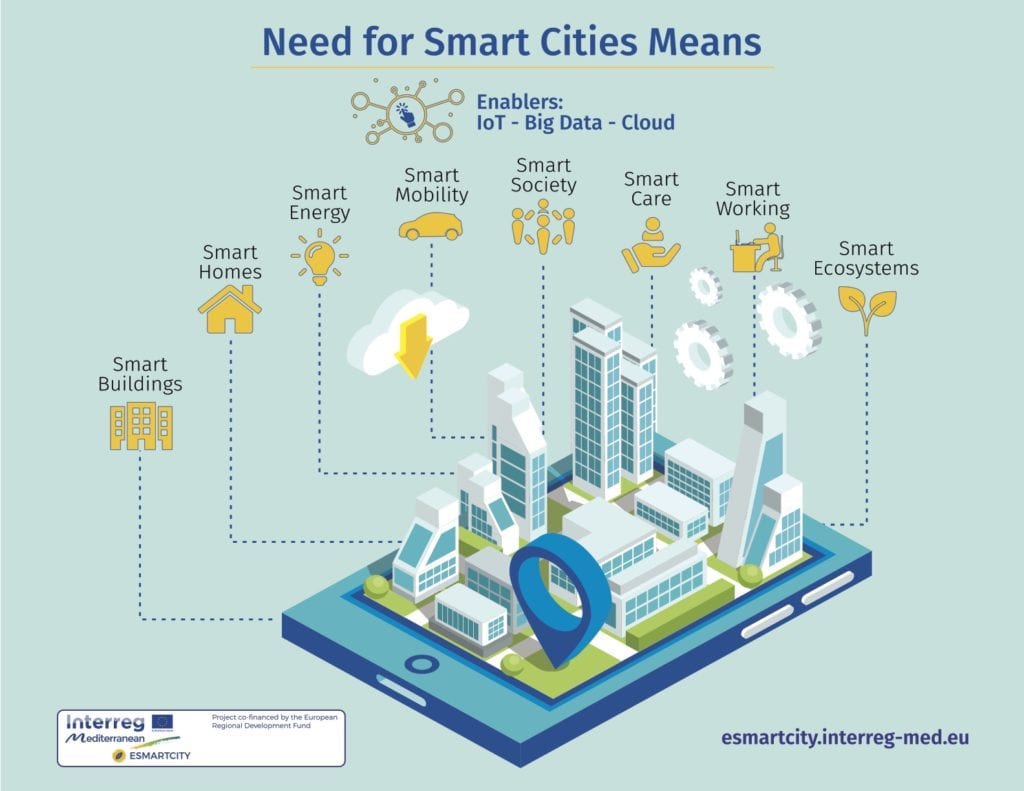
GREEN MIND: Green and Smart Mobility Industry Innovation
Countries: Bosnia and Herzegovina (Sarajevo), Croatia (Istria and Split-Dalmatia regions), France (Provence Alpes Côte d’Azur region), Greece (Thessaloniki), Italy (Ferrara), Spain (Andalusia region)
The Smart Cities concept is intimately linked to digital and product and service design innovation. In this regard, the GGC GREEN MIND project promoted the innovation capacities of public and private bodies in the green and smart mobility industry. GREEN MIND supported transnational clusters and agencies (composed of businesses, research organizations and public authorities) in improving the access to market opportunities of small and medium enterprises
(SMEs) within the expanding eco-mobility sector. GREEN MIND developed and tested three pilot services to strengthen SMEs’ competitiveness and innovation capacities. It reinforced their market positioning by helping them to identify business opportunities, supported them in accessing public funding and matched them with relevant partners to engage in regional and transnational cooperation between businesses, research bodies and authorities.
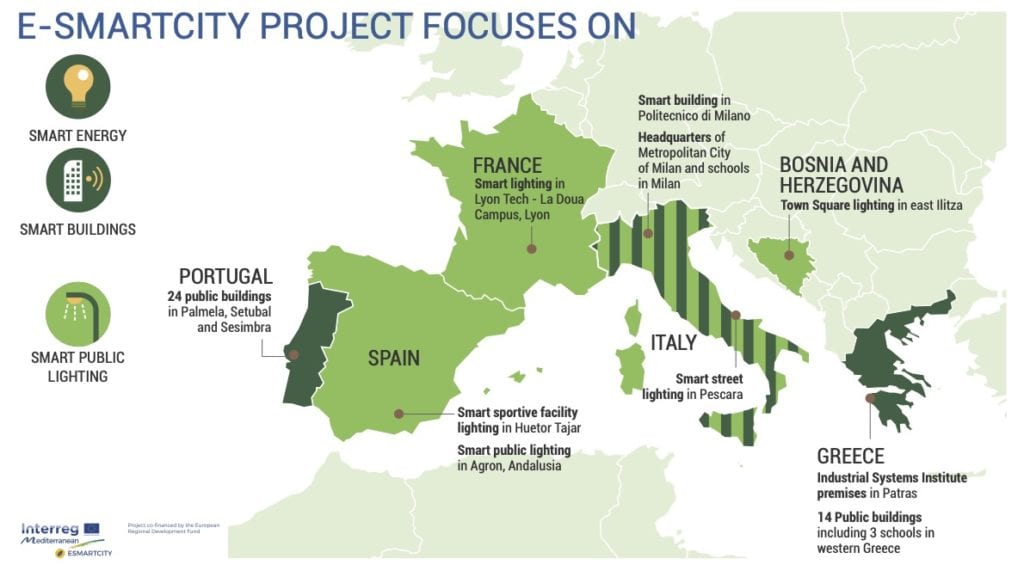
Developing smarter and green mobility is a core target of the EU Green Deal. Transport accounts for 25% of the EU’s greenhouse gas emissions, which should be reduced by 90% by 2050 according to the EU Green Deal. GREEN MIND contributed to the further expansion of eco-mobility by fostering economic competitiveness and innovation, thereby supporting the transition to a green economy in the EU. This sector is rapidly shifting due to continuous technological innovation and increasingly stringent environmental policies, leading to increased demand for green and smart mobility products and services provided both by public and private actors. This is a compelling market opportunity for SMEs, which nonetheless require the type of support provided by GREEN MIND in this complex, transversal industry that spans numerous sectors, including the ICT, transport, logistics, energy and automotive industries.
By providing market intelligence, public funding screening and B2B matchmaking to mobility SMEs within its transnational innovation network, GREEN MIND allowed new linkages to emerge between urban authorities and innovative SMEs in the Euro-Mediterranean region. The project’s tested services and knowledge were also transferred to other clusters, ensuring joint learning, knowledge sharing and capacity building processes. Finally, a policy support programme is disseminating GREEN MIND’s results based on the Smart Specialisation Strategies of the regions involved. This transfer and take up program increased the capacity of Mediterranean clusters participating in the project to deliver smart, eco-mobile solutions at the transnational level.
GRASPINNO: Transnational model, strategies & decision support for innovative clusters & business networks towards green growth
Target Countries: Bosnia Herzegovina, Cyprus, France, Greece, Italy, Slovenia, Spain
From 2016 to 2019, GRASPINNO provided innovative green e-procurement solutions to support energy savings and the efficient refurbishment of public buildings. The project improved the capacity of public authorities to manage the energy efficiency of public buildings and to strengthen the capacity of small and medium enterprises (SMEs) to enter the green energy market. Indeed, mainstreaming solutions for energy efficiency in the built environment is key to achieving the targets of the EU Green Deal and the EU Circular Economy Action Plan. 80% of the EU’s buildings in 2050 already exist now, which is why boosting their energy efficiency and supplying them through renewable energy sources is an essential step towards achieving the targets of these European frameworks.
GRASPINNO ensured the transfer of smart, low-cost and sustainable solutions to public authorities and SMEs in the entire MED region. Working together with public and private stakeholders, the project tested its methodology on 13 pilots within 28 public buildings located in 5 countries, achieving a total reduction in energy consumption of approximately 10%. It is noteworthy that GRASPINNO’S methodology is replicable to other kinds of buildings, and not only public ones. GRASPINNO also created an online platform to centralise the information needed by both public authorities when preparing a public procurement process and for SMEs to showcase their green energy products and solutions. It comprises three tools for green public procurement:
- A database that assists public authorities in setting green energy requirements within their procurements and allows SMEs to propose solutions to meet these targets;
- An electronic Green Public Procurement (eGPP) Support Tool that offers public authorities an easy way to collect green specifications that can inform the tender preparation process;
- A Life Cycle Cost (LCC) Calculating Tool, which attributes an economic value to products and services relevant to the circular economy in the public sector. The platform supports public authorities in planning and managing the green public procurement process, and in publishing and awarding calls for tenders according to the rules of each country. SMEs can also search for tenders and insert their green products and services into the eGPP platform.
The Green Growth Community supported a broad range of actors from the public and private sectors in working and innovating together for more energy-efficient and eco-mobile Mediterranean cities. Read more about the Interreg Green Growth working groups on eco-innovation and smart cities by delving into their White Papers:
- GGC White Paper 2 – Towards circular towns and cities: promoting green and smart public services within Mediterranean municipalities to move towards a circular economy
- GGC White Paper 4 – Fit for a circular future: promoting competitiveness and innovation of Mediterranean SMEs for a circular economy
Join the community
Learn more about the Interreg MED Green Growth project and join our Green Growth Capitalisation Community.